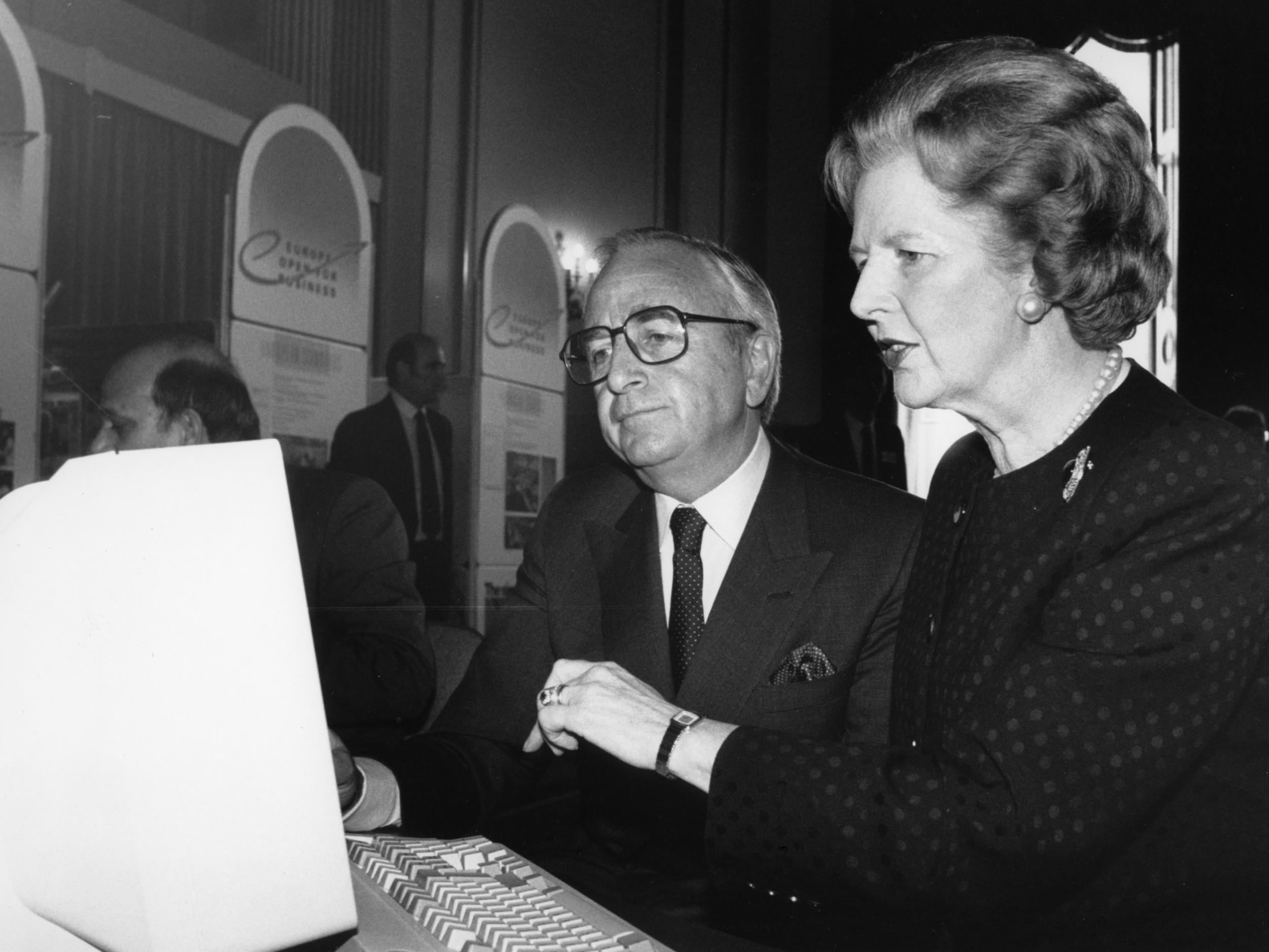Downing Street’s entry into computer age revealed in secret documents from Thatcher and Major years
‘Internet users will be a growing group of opinion-formers, and I can just imagine Tony Blair showing how he belongs to a new generation by signing up,’ warns Damian Green in 1994 memo

Desks deemed the wrong height, computers unused for months, pleas to install new technology in a fashion “sympathetic to the decor” and tales of Tory paranoia at the prospect of being leapfrogged by New Labour have all surfaced in a tranche of previously secret documents which detail Downing Street’s first tentative steps into the world of IT.
The papers reveal how civil servants during the Thatcher and Major years struggled to get to grips with new technology, as well as the enormous cost and sometimes baffling delays involved in using it.
Correspondence reveals an early web advocate in Damian Green, who recognised that “getting online” was a political imperative. Then an adviser to John Major and still three decades away from his humiliation over pornography found on his work computer, Mr Green voiced fears in 1994 that Tony Blair would steal a march on the Conservatives by “logging on first”.
In 1994 the internet was in its infancy, and the file reveals Mr Green’s insistence that the Conservatives be seen as early adopters.
He wrote on 22 August: “MPs who are computer-literate have made the point to me that it would be advantageous for No 10 to be seen to be up with developments in this area. Specifically, connecting No 10 with the internet would keep us up with the White House, which has made a big thing of the modern way the Clinton/Gore administration deals with communications.
“Internet users will be a growing group of opinion-formers, and I can just imagine Tony Blair showing how he belongs to a new generation by signing up.”
Mr Blair, however, was widely reported to have been bad with technology with Alastair Campbell telling the BBC in 2006 he was a “pen and paper man”.
Mr Green said this month: “I am delighted to have been ahead of the curve on the internet, but confess my complete ignorance about Tony Blair’s technophobe tendencies.”
The documents, released to the National Archives under the 30-year rule, depict staff eager to adopt new gadgets but hamstrung by budgetary and compatibility problems. The very first item in the file dates from February 1987 and hints at what is to follow.
Andy Bearpark, Margaret Thatcher’s private secretary, wrote a memo to colleagues titled “Telecom radio paging” which read: “We have just discovered that one of our two bleepers in the Private Office at No 10 … has not been usable since mid-1985, at which time we understand its subscription was discontinued. If nothing else this may explain why I have yet to be disturbed by it when I take it home at weekends when I am on duty!”
Many of the documents are memos discussing budgets for equipment and its installation. In the late 1980s and early-to-mid 1990s computers were hugely expensive and saw rapid leaps in performance, meaning costly equipment was obsolete after only a short time.
In 1988 Number 10’s parliamentary questions section was quoted £7,265 for a multi-user system – with a capacious 62MB hard disk and 2MB of RAM. (The equivalent of £18,520 in 2017, according to the Bank of England’s inflation calculator.) Keyboards cost extra, at £396 for two units. But officials avoided paying Northern Telecom, the company in question, £3,290 for an own-brand inkjet printer by shelling out a mere £1,600 for an alternative model.
In 1991 Caroline Slocock, another of Ms Thatcher’s private secretaries, budgeted £6,000 for a single computer.
Problems continued after new machines were delivered, the documents show. Ms Slocock noted in August 1990 that a trio of workstations purchased for the honours section would not fit, and that new furniture costing £4,006 was needed. “The current desks are not the right height to sit comfortably using the computers,” she wrote. Nearly a month later the department was no closer to finding suitable replacements.
Also that summer, Ms Slocock wrote to Mike Childs in the information technology and methods branch to pass on concerns about brand-new computers languishing in No 10’s appointments section “many months” after they were delivered. He replied that although some of the machines were being used in a temporary configuration, some £6,000 was required for full installation – and then the work would have to be done “professionally and in sympathy with the decor”.
Meanwhile, a measure of confusion had taken hold in Downing Street’s telecommunications secretariat as to whether it ought to have overseen the department’s computerisation. The section should be consulted on all matters, its head insisted in October 1989; Mr Childs from IT acknowledged that “the increasingly large overlap between communications and computing is making the task of determining responsibilities more exacting”, as machines became powerful enough to perform multiple tasks.
Documents from 1991 and 1992 reveal senior officials’ efforts to convince colleagues of the benefits of networked computing. Civil servants could communicate more quickly and would be freed from the burden of backing up their work as it would all be stored on a central server, Donald Horsburgh enthused. There might even be financial savings involved, he suggested – though setting up just one employee with network access was expected to cost £2,000.
Join our commenting forum
Join thought-provoking conversations, follow other Independent readers and see their replies
Comments